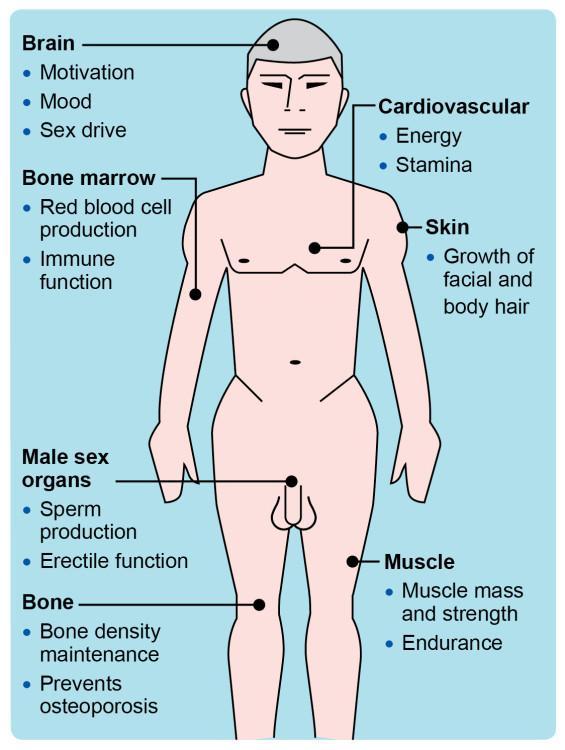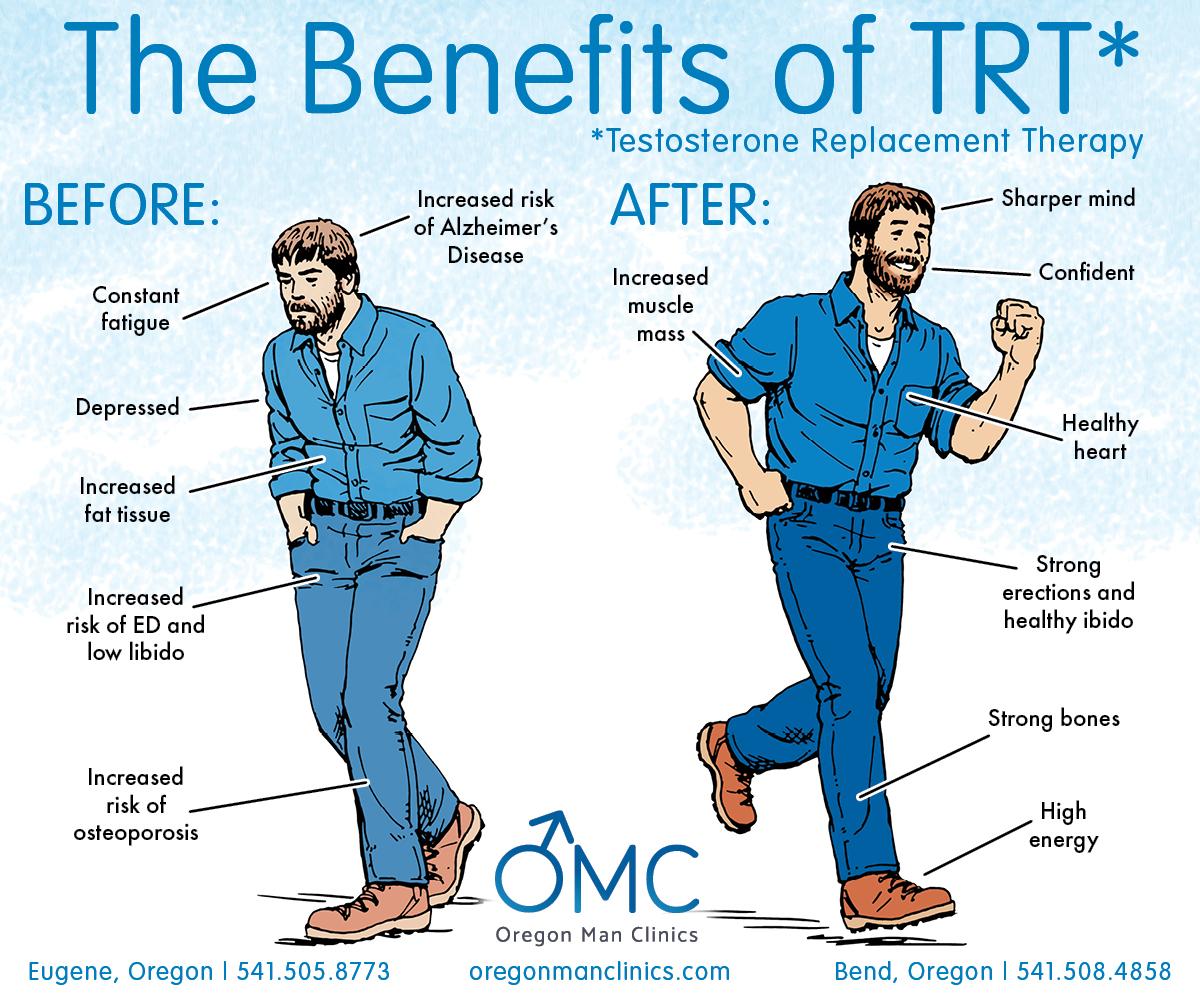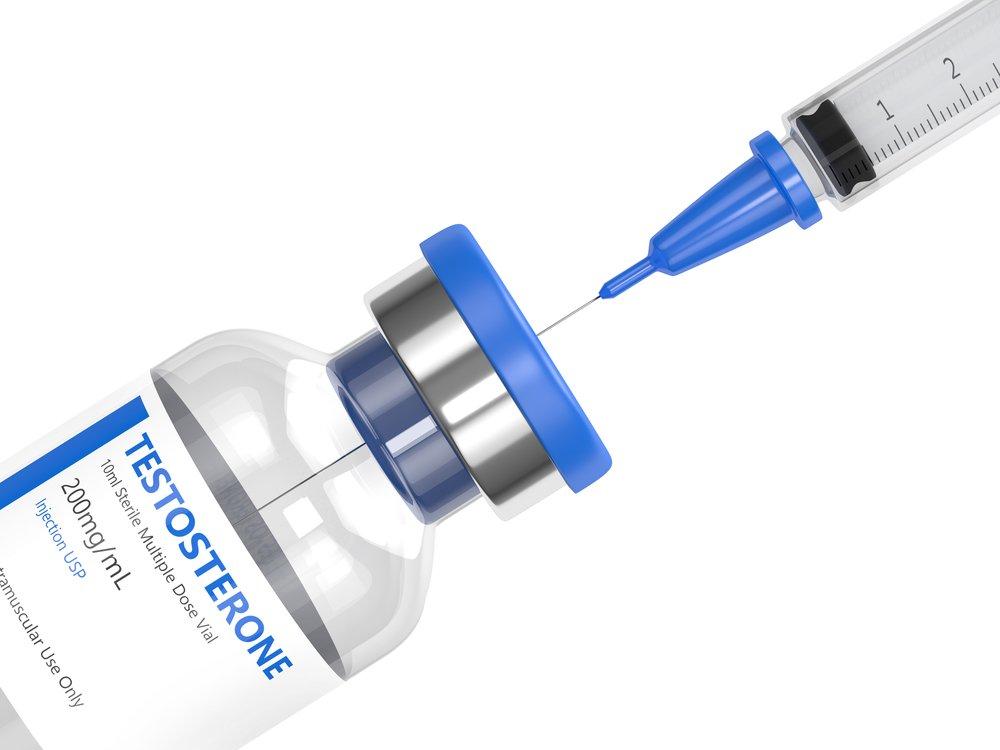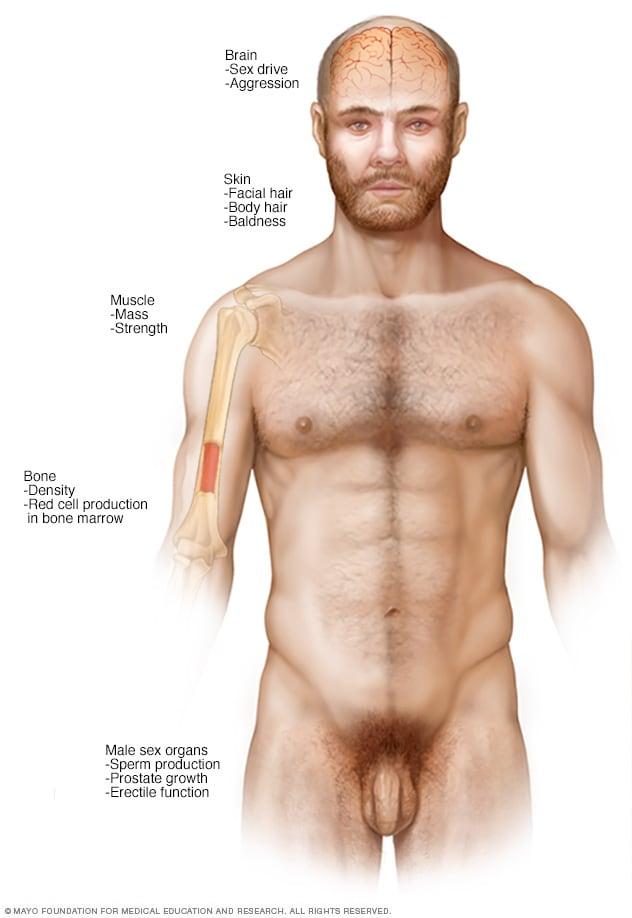In a world increasingly attuned to the importance of balance—be it in our diets, lifestyles, or mental well-being—hormonal health has emerged as a critical frontier. For many, testosterone levels can significantly influence mood, energy, and overall vitality. As men and women navigate the complexities of age and health, the search for skilled practitioners in testosterone therapy becomes paramount. This article delves into the realm of the best testosterone therapy doctors, exploring their expertise, innovative approaches, and commitment to enhancing the lives of their patients. Whether you’re seeking to reclaim your vitality or simply curious about the options available, join us as we unveil the leading specialists dedicated to guiding individuals on their journey toward hormonal harmony.
Understanding the Role of Testosterone Therapy in Mens Health
Testosterone therapy is an essential aspect of men’s health, particularly as they age or experience conditions that can lead to low testosterone levels, also known as hypogonadism. This hormone plays a crucial role in various bodily functions, including muscle mass maintenance, bone density, and mood regulation. Men considering this therapy often have specific symptoms such as fatigue, decreased libido, or mood swings. By addressing these concerns, testosterone therapy can significantly improve quality of life, enhancing energy levels, mental clarity, and emotional well-being.
Before initiating therapy, it’s important for men to undergo thorough evaluations by qualified professionals who can provide individualized care. Key factors to discuss with your testosterone therapy doctor may include:
- Medical History: Any previous health issues that could impact therapy effectiveness.
- Current Medications: Potential interactions with existing prescriptions.
- Expected Outcomes: Goals of therapy and realistic expectations.
Regular follow-ups and monitoring are essential to ensure the therapy remains effective and safe. Additionally, potential side effects must be addressed by experienced practitioners, who can recommend adjustments if necessary. The right guidance from skilled providers not only optimizes the therapy but enhances overall men’s health in the long run.

Identifying Criteria for Choosing a Top Testosterone Therapy Doctor
Choosing a doctor specialized in testosterone therapy requires careful consideration of several key criteria to ensure you receive the best care possible. First and foremost, evaluate their credentials and experience. Look for board-certified endocrinologists or urologists with a proven track record in hormonal therapies, particularly testosterone management. A physician’s past patient outcomes and testimonials can also provide insight into their effectiveness and approach. Furthermore, consider their availability and communication style—a doctor who listens attentively to your concerns and engages in open dialogue will likely improve your overall treatment experience.
Next, assess the range of services and treatment options offered by the facility. A top-tier testosterone therapy doctor should not only provide hormone replacement therapy (HRT) but also discuss lifestyle changes, such as nutrition and exercise, as part of a holistic approach to health. Additionally, embrace the importance of a thorough evaluation process that encompasses comprehensive blood testing and ongoing monitoring of testosterone levels. Here’s a quick reference table of essential criteria to help guide your decision:
| Criteria | Description |
|---|---|
| Credentials | Board certifications and relevant specialization |
| Experience | Years of practice and patient testimonials |
| Communication | Ability to listen and discuss treatment openly |
| Services Offered | Comprehensive treatments beyond HRT |
| Evaluation Process | Thorough assessments with ongoing monitoring |

Exploring the Benefits of Personalized Testosterone Treatment Plans
Personalized testosterone treatment plans offer a tailored approach to managing low testosterone levels, ensuring that each patient receives a regimen that aligns with their specific health needs and lifestyle. Unlike one-size-fits-all solutions, these customized plans take into consideration a variety of factors such as age, symptom severity, medical history, and personal goals. By integrating these aspects into the testing and treatment process, healthcare providers can promote more effective hormonal balance while minimizing potential side effects.
Furthermore, individualized treatment plans foster ongoing communication between patients and their healthcare providers, creating a more dynamic and responsive framework for care. This interaction allows for adjustments based on feedback and monitoring results, ultimately enhancing patient satisfaction and outcomes. Key benefits include:
- Improved symptom relief
- Enhanced energy levels
- Increased muscle mass and strength
- Better mental clarity and mood regulation
- Greater overall health and vitality

Evaluating Doctor Credentials and Experience in Hormonal Health
When selecting a medical professional for testosterone therapy, examining credentials and experience is essential. Start by verifying their education, ensuring they have a medical degree from an accredited institution. Check if they are board-certified in areas such as endocrinology or urology, as these specialties indicate a focus and expertise in hormonal health. Consider looking into their experience with testosterone therapy specifically, as familiarity with the latest protocols and treatment options can significantly impact patient outcomes.
Additionally, gathering insights from patient reviews and testimonials can provide a clearer picture of a doctor’s approach and success rates. Look at factors such as their involvement in ongoing education, presence at medical conferences, and contributions to research in hormonal health. Create a shortlist of potential providers and prioritize consultations to discuss treatment plans. This personal interaction can reveal not only their knowledge but also their communication style, which is critical for establishing a trusting patient-practitioner relationship.
Patient Testimonials: Real Experiences with Testosterone Specialists
Patient Testimonials
Many patients have found transformative results through their journeys with testosterone specialists. Here are a few experiences shared by those who sought these treatments:
- John D.: “After starting therapy, my energy levels skyrocketed. I feel like I’m in my twenties again!”
- Sarah P.: “The expert advice I received not only helped manage my symptoms but also improved my overall mood.”
- Mike T.: “The personalized approach of my doctor made all the difference. I truly felt seen and understood throughout the process.”
For others, the impact of testosterone therapy has extended beyond physical changes, cultivating a newfound sense of confidence:
| Patient Name | Major Improvement |
|---|---|
| Laura K. | Enhanced Focus |
| Sam L. | Increased Muscle Mass |
| Debbie J. | Better Sleep Quality |
These testimonials showcase the diverse benefits and life-changing effects of consulting with a qualified testosterone specialist, underscoring their critical role in the journey to better health.
Navigating the Cost and Insurance Coverage for Therapy Sessions
Understanding the financial implications of therapy can be daunting, especially when it comes to seeking treatment for testosterone therapy. The cost of sessions can vary significantly based on several factors, including location, the expertise of the provider, and the specific services rendered. It’s essential to consider not only the upfront costs of therapy but also any long-term financial commitments that may arise during treatment. When evaluating potential expenses, keep these factors in mind:
- Initial Consultation Fees: Many providers charge for the first visit, where a comprehensive assessment occurs.
- Follow-Up Sessions: These may be needed regularly, impacting your overall budget.
- Medications and Supplements: Consider the cost of any prescribed androgen therapies.
- Possible Additional Treatments: Other therapeutic measures might be suggested, each with its own cost.
Insurance coverage can significantly influence out-of-pocket expenses for therapy. Not all insurance plans cover hormone therapy, and the extent of coverage can vary as well. It’s advisable to contact your insurance provider to clarify what is included and to look for practitioners who accept your insurance. Key points to discuss with your insurance representative include:
- Pre-authorization Requirements: Some plans require prior approval for specific treatments.
- In-Network vs. Out-of-Network Providers: Understand the difference in costs associated with seeking treatment from in-network specialists.
- Lifetime Limits: Confirm if there are any limitations on coverage that might impact your treatment.
- Prescription Coverage: Check what percentage of the costs your plan will cover for any necessary medications.
Future Trends in Testosterone Therapy and the Importance of Staying Informed
As we look towards the future of testosterone therapy, numerous exciting trends are emerging that promise to reshape the landscape of hormonal treatment. New research is uncovering the multifaceted roles of testosterone, not just in physical health but in mental well-being, which is leading to more comprehensive treatment protocols. This evolution is characterized by a shift towards personalized therapy, utilizing advanced diagnostic tools to tailor treatment plans bespoke to individual needs. Moreover, innovations in delivery methods—such as transdermal patches, nasal sprays, and advanced injectable therapies—are making it easier for patients to adhere to their treatment regimens, minimizing side effects and maximizing efficacy. Staying updated on these advances is crucial for patients seeking optimal outcomes.
The importance of staying informed cannot be overstated, as the field of testosterone therapy is rapidly evolving. Patients are encouraged to engage with their healthcare providers about the latest research and emerging therapies. Consider the following key areas that are likely to influence future treatments:
- Long-term Safety Studies: Ongoing research into the long-term effects of testosterone therapy will provide critical insights into safe usage.
- Hormone Optimization: A growing emphasis on hormonal balance rather than just testosterone levels, considering factors like estrogen and DHT.
- Accessibility of Care: Increased telemedicine options are making it easier for men to consult with qualified specialists without geographical limitations.
| Trend | Impact |
|---|---|
| Personalized Therapy | Better patient outcomes through tailored treatment approaches. |
| Technological Innovations | Improved delivery methods increase adherence and satisfaction. |
| Increased Research | Enhanced understanding of testosterone’s broader effects leads to safer treatments. |
Q&A
Q&A: Navigating the World of Testosterone Therapy and Finding the Best Doctors
Q1: What is testosterone therapy, and why might someone consider it?
A: Testosterone therapy is a medical treatment designed to address low levels of testosterone, a hormone crucial for various bodily functions, including muscle mass, mood regulation, and sexual health. Individuals may consider it if they experience symptoms like fatigue, mood changes, decreased libido, or other health concerns attributed to low testosterone levels.
Q2: How do I know if I need testosterone therapy?
A: The need for testosterone therapy is typically determined through a combination of symptom assessment and blood tests. A healthcare provider will conduct a thorough evaluation, including a physical examination and lab work, to measure testosterone levels and rule out other conditions. It’s important not to self-diagnose; consulting a healthcare professional is the best course of action.
Q3: What should I look for when searching for the best testosterone therapy doctors?
A: When seeking a qualified testosterone therapy doctor, consider the following factors:
- Credentials and Experience: Look for doctors who specialize in endocrinology or urology, as they have in-depth knowledge of hormonal health.
- Patient Reviews: Check online reviews and testimonials to gauge other patients’ experiences.
- Personalized Care: The best doctors will tailor treatment plans to meet your specific needs and will engage in open communication about all options available.
- Follow-Up Care: Effective therapy often requires ongoing adjustments, so choose a doctor who prioritizes follow-up appointments and monitoring.
Q4: What types of treatments can a testosterone therapy doctor offer?
A: Testosterone therapy can be administered in several ways, including injections, patches, gels, and pellets. A skilled doctor will discuss the benefits and potential side effects of each method, helping you choose one that fits your lifestyle and health goals.
Q5: Are there risks associated with testosterone therapy?
A: Yes, while testosterone therapy can provide significant benefits, it also comes with potential risks. Side effects may include sleep apnea, acne, breast enlargement, and an increased risk of cardiovascular issues. It’s essential to have a thorough discussion with your doctor about these risks and undergo regular monitoring during treatment.
Q6: How can I ensure a good doctor-patient relationship with my testosterone therapy doctor?
A: Open communication is key! Be honest about your symptoms, concerns, and treatment preferences. Prepare questions ahead of your visit to ensure all your concerns are addressed. A collaborative approach fosters trust and leads to better health outcomes.
Q7: How can I find the right testosterone therapy doctor in my area?
A: Start by seeking referrals from your primary care physician or friends who have undergone similar treatment. Online resources, such as telehealth platforms, doctor directories, and professional associations, can also be helpful. Once you have a few names, take the time to research their backgrounds and schedule consultations to evaluate compatibility.
Q8: What should I expect during my first appointment with a testosterone therapy doctor?
A: During your initial visit, expect a comprehensive medical history review, a discussion about your symptoms, and a physical examination. Blood tests may be ordered to assess your hormone levels. It’s a great opportunity to ask questions and discuss any concerns you may have about the therapy process.
Q9: How can I educate myself about testosterone therapy?
A: Educating yourself is crucial. Reliable sources include medical websites, peer-reviewed studies, and authoritative health organizations. Joining support groups or forums can also offer insights from individuals who are undergoing or have completed testosterone therapy.
Q10: What’s the most important takeaway when considering testosterone therapy?
A: The most important takeaway is to approach testosterone therapy with an informed mindset and the right medical guidance. Seeking help from qualified professionals ensures you get personalized care tailored to your needs, empowering you to reclaim your vitality and overall well-being. Remember, the journey to optimal health is collaborative—your doctor is your partner every step of the way!
In Conclusion
navigating the complex landscape of testosterone therapy is a journey best undertaken with the guidance of dedicated and knowledgeable professionals. The doctors highlighted in this article have shown a commitment to excellence, offering personalized care and effective treatment plans tailored to each patient’s unique needs. As you embark on this path toward better health and vitality, remember that a well-informed choice is your best ally. Whether you seek to enhance your overall well-being, regain energy, or address specific hormonal imbalances, the right expert can make all the difference. We encourage you to research, ask questions, and take that first step toward reclaiming your health. After all, your journey is not just about therapy; it’s about discovering a more vibrant you.










